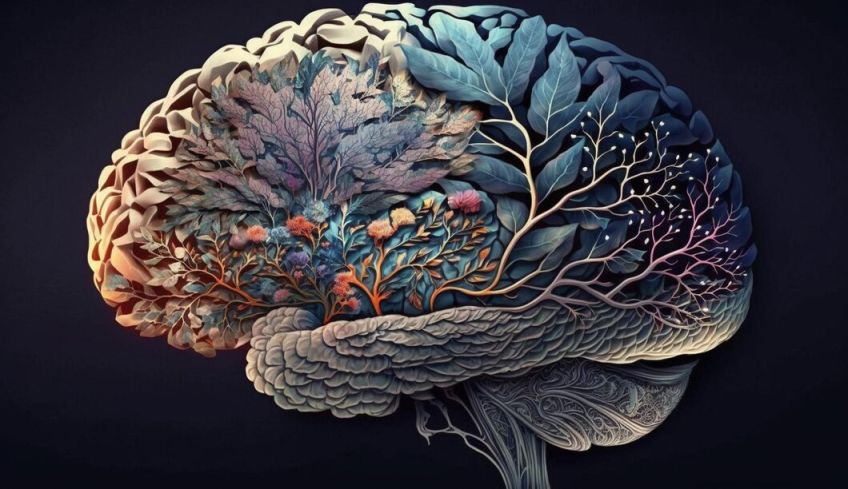Leadership is a complex and dynamic skill that has fascinated scholars, professionals, and organizations for centuries. While traditional theories of leadership have emphasized qualities such as charisma, vision, and communication, the field has evolved to recognize that leadership is not solely based on innate traits or learned behaviors. Instead, it is deeply rooted in the intricacies of the human brain.
In recent years, the emerging field of neuroleadership has shed light on how understanding the brain can make you a better leader.
What is Neuroscience?
Neuroscience is a multidisciplinary field of scientific study that delves into the intricate and enigmatic realm of the nervous system, particularly the brain and its intricate workings. It seeks to unravel the mysteries of the brain’s structure, function, development, and how it relates to behavior, cognition, and various neurological disorders. Neuroscience is the key to understanding the biological underpinnings of the mind.
At its core, neuroscience explores the brain’s vast network of billions of nerve cells, or neurons, and their connections, known as synapses. These neurons communicate through electrical impulses and chemical signals, forming complex neural circuits that govern everything from basic bodily functions to high-level cognitive processes.
The field of neuroscience encompasses various subdisciplines, each with its own focus:
Neuroanatomy
- Provides essential insights into the brain’s structural changes in response to aging, injury, and various neurological conditions.
- Supports neurosurgeons in planning intricate, minimally invasive procedures to treat brain disorders.
- Advances the field of neuroimaging, aiding in the identification of brain lesions, abnormalities, and developmental anomalies.
- Contributes to the understanding of neural connectivity, offering valuable clues about how different brain regions collaborate in various functions.
Neurophysiology
- Investigates the role of ion channels, receptors, and synaptic plasticity in learning, memory, and the development of neural circuits.
- Provides a deeper understanding of neuromodulation techniques, including their application in treating mood disorders and movement disorders.
- Illuminates the role of neural oscillations in cognitive processes and their relevance to conditions like epilepsy and Alzheimer’s disease.
- Offers critical insights into the neural mechanisms underpinning chronic pain conditions, aiding in pain management strategies.
Cognitive Neuroscience
- Uncovers the neural substrates of decision-making processes, such as risk assessment and reward anticipation, with implications for economics and behavioral economics.
- Explores the plasticity of the adult brain and its ability to adapt following injuries, cognitive training, or environmental changes.
- Sheds light on the cognitive development of children and adolescents, enhancing educational approaches.
- Informs neuroethical discussions concerning the responsible use of neurotechnologies and the ethical implications of emerging cognitive enhancement techniques.
Behavioral Neuroscience
- Investigates genetic and epigenetic factors influencing personality traits, mental health, and susceptibility to psychiatric disorders.
- Explores the interplay between genetic predisposition and environmental factors in shaping brain development and behavior.
- Provides insights into the neurobiology of aggressive behaviors, empathy, and social interactions, aiding in social psychology research.
- Facilitates the development of pharmacological treatments for a wide range of behavioral and psychiatric conditions.
Clinical Neuroscience
- Facilitates the development of personalized, precision medicine approaches for treating neurological and psychiatric conditions.
- Supports the research and implementation of neurorehabilitation techniques, offering hope to individuals recovering from brain injuries.
- Offers insights into the development of non-invasive brain stimulation methods for the treatment of mental health conditions, like depression and anxiety.
- Advances the understanding of neuropsychiatric disorders, leading to more effective interventions for conditions such as bipolar disorder and post-traumatic stress disorder (PTSD).
Developmental Neuroscience
- Investigates the long-term impact of early-life stress on brain development and adult mental health.
- Sheds light on the potential for neuroplasticity throughout the lifespan and its applications in neurorehabilitation.
- Offers a deeper understanding of neurodevelopmental disorders, assisting in the development of early intervention strategies.
- Fuels the field of educational neuroscience, optimizing teaching methods to support cognitive development in children and adolescents.
- These expanded descriptions illustrate the comprehensive and diverse applications of each subdiscipline within the field of neuroscience, underlining their significance in advancing our understanding of the brain and its implications for health, behavior, cognition, and society.
Ready to uncover the neuroscience of leadership and become a better leader?
Contact Growth Hackers
The Brain and Leadership
The brain is the epicenter of all human thoughts, emotions, and behaviors, including those related to leadership. Understanding the neural mechanisms that underlie leadership can provide valuable insights into how leaders can improve their effectiveness.
Here are some key aspects of the neuroscience of leadership:
Emotional Intelligence (EQ):
One of the cornerstones of effective leadership is emotional intelligence, which involves recognizing and managing your emotions and those of others through mindful management. The brain’s limbic system, particularly the amygdala and prefrontal cortex, plays a critical role in emotional processing and regulation. Leaders with a high EQ have well-developed prefrontal cortex regions that allow them to control their emotional responses, empathize with others, and make better decisions in emotionally charged situations.
Implementing a Standard Operating Procedure for emotional intelligence equips leaders with the tools to navigate complex emotional landscapes effectively, fostering better decision-making and harmonious team dynamics.
Social Awareness
Leadership often involves navigating complex social dynamics. The brain’s mirror neuron system, which understands and mirroring the emotions and actions of others, plays a crucial role in social awareness. Effective leaders are attuned to the emotions and needs of their team members, enabling them to build strong relationships and foster collaboration.
Decision-Making
Leaders are frequently faced with high-stakes decision-making. The brain’s prefrontal cortex, specifically the dorsolateral prefrontal cortex, is involved in executive functions like planning, reasoning, and decision-making. Understanding how the brain processes information and makes choices can help leaders make more informed and strategic decisions. Steve Jobs was stellar at decision making, at least when it came to the companies he was a leader in.
Resilience
Leaders often encounter stress and adversity. The brain’s ability to adapt and recover from stress is linked to its plasticity, which allows it to rewire and strengthen neural connections. Leaders who understand the neurobiology of resilience can develop strategies to bounce back from setbacks and inspire their teams to do the same.
Practical Applications of Neuroleadership
Now that we’ve explored how the brain and leadership are interconnected, let’s delve into practical applications that can make you a better leader:
Self-awareness
Leaders can enhance their self-awareness by developing a deeper understanding of their brain’s strengths and weaknesses. This includes recognizing patterns of behavior, emotional triggers, and cognitive biases. Tools such as neurofeedback and mindfulness meditation can help leaders gain insights into their brain’s functioning and improve self-regulation.
Emotional regulation
Leaders can train their brains to better regulate emotions, especially in high-pressure situations. Techniques like deep breathing, meditation, and cognitive reappraisal can activate the brain’s prefrontal cortex and reduce the influence of the amygdala, resulting in improved emotional control.
Empathy and communication
Neuroscientific research shows that empathy is a skill that can be cultivated. Leaders can enhance their empathetic abilities by practicing active listening, perspective-taking, and mirroring positive emotions. These practices can lead to stronger connections with team members, improved communication, and can also play a vital role in understanding how to sell online if you are running an online business.
Decision-making and problem-solving
Leaders can apply neuroscience insights to improve their decision-making processes. This includes seeking diverse perspectives, minimizing cognitive biases, and creating environments that foster creative thinking. Understanding the neural mechanisms behind decision-making, along with utilizing tools such as Swimlane flowcharts, can lead to more effective and informed choices.
Building a resilient team
Leaders who understand the neuroscience of resilience can create a work environment that promotes well-being and adaptability. Encouraging activities like exercise, stress management, and skill-building can help team members develop greater resilience, leading to improved overall employee performance.
Start elevating your leadership skills today!
Contact Growth Hackers
Neuroleadership Case Studies
Global technology company
A prominent global technology enterprise based in the United States, boasting a workforce of over 100,000 professionals worldwide, found itself at a pivotal juncture. The newly appointed CEO quickly discerned a corporate culture characterized by internal silos, cutthroat competitiveness, a sense of disconnection, and a rigid adherence to conventional thinking. This stark contrast to the CEO’s vision of a cutting-edge technology powerhouse operating on the forefront of innovation was disconcerting.
Recognizing the urgency of the situation, the CEO understood nothing short of a comprehensive cultural overhaul would suffice to bridge this divergence. The senior leadership team embarked on a transformative journey, laying the foundation for a new organizational culture grounded in principles of growth, exemplary customer service, diversity and inclusivity, unity, and impactful contributions.
While formulating these cultural aspirations marked a significant initial stride, the leadership team realized that an additional element was imperative. Mere intentions wouldn’t suffice to effect lasting change; a new leadership paradigm was the linchpin for driving this cultural transformation and realizing their vision of propelling the company to unprecedented heights of success.
The Solution:
To reshape corporate leadership and instigate impactful cultural transformation, the technology company partnered with the NeuroLeadership Institute (NLI). NLI is renowned for its expertise in behavior change and its track record in crafting potent leadership models grounded in practical neuroscience and cutting-edge research.
The Result:
Employing a cohesive, neuroscience-inspired approach, the Leadership Principles and Practices have become a universal communication tool among leaders and employees within the technology company. This framework has sparked widespread positive behavioral changes. Over 5,000 employees have undergone training in this innovative leadership model and its scientific foundations since its inception.
The tailored training program has been instrumental in empowering more than 1,200 Partners and 2,000 High Potentials. It has breathed new life into cultural and business perspectives, spanning three global regions and encompassing 13 cities.
Final Words on the Neuroscience of Leadership
The emerging field of neuroleadership offers a valuable perspective on leadership by highlighting the deep connection between the brain and effective leadership. By harnessing the power of neuroscience, leaders can enhance their emotional intelligence, social awareness, decision-making abilities, and resilience. This understanding can lead to more effective leadership, improved team dynamics, and better outcomes for organizations.
As we continue to unravel the mysteries of the brain, the potential for neuroscience to shape the future of leadership is boundless, offering leaders a unique opportunity to transform themselves and their teams for the better.
Growth Hackers is an award-winning growth hacking services agency helping businesses from all over the world grow. There is no fluff with Growth Hackers. We help entrepreneurs and business owners elevate their leadership skills with the power of neuroscience, increase their productivity, generate qualified leads, optimize their conversion rate, gather and analyze data analytics, acquire and retain users and increase sales. We go further than brand awareness and exposure. We make sure that the strategies we implement move the needle so your business grow, strive and succeed. If you too want your business to reach new heights, contact Growth Hackers today so we can discuss about your brand and create a custom growth plan for you. You’re just one click away to skyrocket your business.









